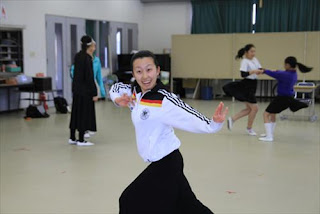(Yonhap Feature) School battles stigma as it tries to rebuild after tsunami
By Won Jiyoon
Contributing writer
SENDAI, Japan, March 28 (Yonhap) -- For the past 12 months, students at Tohoku Chosen, a local elementary and high school, have been taking classes taught in a cafeteria and dormitories. The school's main five-story building vanished after an earthquake and the ensuing tsunami wiped out much of Japan's northeast in March last year. The land where the school once stood is still barren, blanketed by snow, and there is no knowing when things will return to normal.
Like many others, Tohoku Chosen is seeking government financial assistance in rebuilding. A concern for school officials and students is that they might be treated differently because of the school's affiliation with North Korea.
Tohoku Chosen, established in 1965, is one of approximately 140 schools throughout the country founded by Chongryon, an organization of pro-Pyongyang Korean residents in Japan. Students and administrators at these schools have complained of social and political harassment because of their allegiance to North Korea. In 2002, the country shocked its Asian neighbor by admitting to kidnapping Japanese nationals decades ago. Pyongyang-Tokyo relations remain on thin ice, with North Korea raising tension in the region with its missile and nuclear weapons development. Bitter history from Japan's 36 years of colonization of the Korean Peninsula has also hindered better relations.
Students at Tohoku Chosen stop their snowball fight to pose for the camera. They were playing next to the destroyed school site, using parked cars as cover. (All photos courtesy of Won Ji-yoon)
Tohoku Chosen's principal, Yun Jong-chol, is trying hard to make the Japanese government understand that his students need a new school. He is working as hard for recognition that his school is like any other school in Japan.
"We don't teach students that the Japanese government or Japanese people are bad," Yun said.
Most of the Korean residents in Japan arrived during the 1910-45 Japanese colonial rule over the peninsula, some as forced laborers during World War II. Many have not switched to Japanese citizenship and are often referred to as "Zainichis," meaning residents of Japan.
Yun believes that the primary problem is that the Japanese government doesn't guarantee educational support for Chongryon schools.
"Teaching Korean and Korean writing in Chongryon school is not harmful to the Japanese society," he said. "But Japanese government wants Zainichi to become Japanese, at least when we are dealing with education."
A Tokyo woman in her mid-30's, a resident of Japan who has a Korean citizenship, said she knows there is a stigma that goes with being affiliated with Chongryon.
"Many in Japan believe Chosen schools are nurturing revolutionaries, spies and are creating bombs to attack Japan," she said, asking not to be identified by name.
Hiroshi Kato, an official with documentation and private school affairs division of Miyagi Prefecture, said the government provided 1.5 million Japanese yen (US$18,000) to Tohoku Chosen for earthquake-related damages last year. Yun, the school principal, is asking for 100 times that.
"Our goal is to have 100 million yen to 200 million yen for the school's reconstruction," he said. "I'm negotiating with the Japanese government, and hope to get the funds approved. Only then can construction begin on a new school."
Kato has said there are currently no plans to provide further subsidies this year because of lack of funds.
Some aid groups from South Korea, who is technically still at war with the North because their fratricidal war (1950-53) ended only with a truce, have sent relief packages, including water and shoes, but restoring proper classrooms has been slow, school officials say.
Dance teacher Kim Young-im practices dance moves before teaching her students at the school cafeteria.
For the students, it is hard to understand daily inconveniences.
Che Hwan-su, 11, may be too young to fully understand what he is going through. He only knows that studying at a dormitory is not fun.
"I am sad because the dorm is too small and I can no longer play hide and seek game with my friends in a classroom," he said.
Jin Su-chul, 13 misses the blackboard.
"I used to draw pictures or write something down on the whiteboard for fun," said Jin. "So without a blackboard I feel I am just playing at school, not studying. I can't concentrate."
Girls are practicing their ballet moves in the cafeteria, a little dulled because of layers of clothes they have to wear for the chilly weather. Each time they make mistakes, they communicate in both Korean and Japanese to coordinate their steps better. This, Yun says, is what makes him proud of his school -- keeping Korean language classes and teaching students well enough to speak and write Korean from generation to generation.
Che Yun-su, 13, is hoping to have a new school "within a month." But he knows it will likely take a lot longer before his school life returns to normal.
jiyoonwon@gmail.com
(END)

